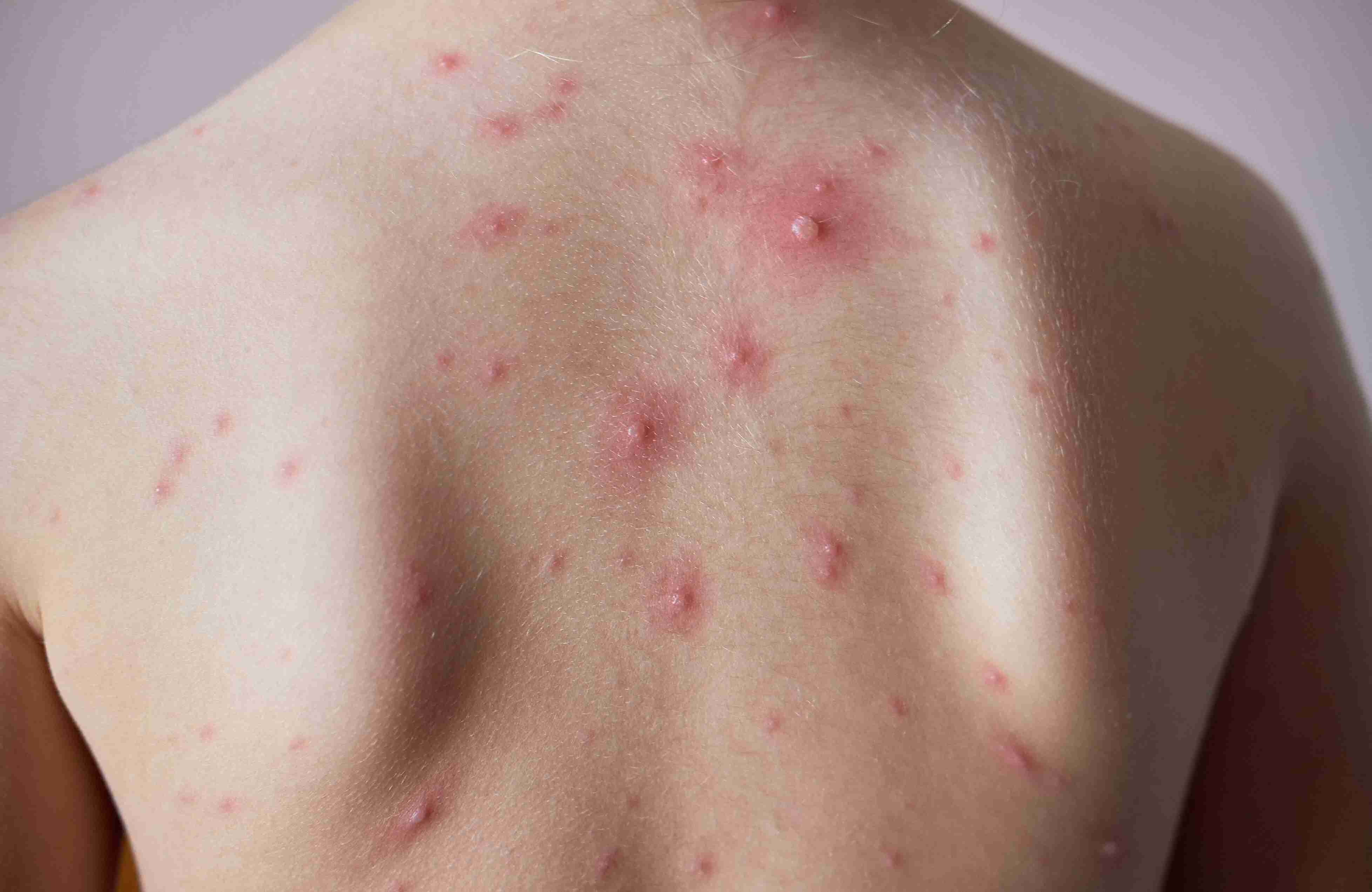
What is Chickenpox? Chickenpox, also known as varicella, is a highly contagious viral infection caused by the varicella-zoster virus (VZV). This illness primarily affects children but can also impact adults. Symptoms of chickenpox include an itchy, blister-like rash, fever, and fatigue. The virus spreads easily through direct contact with an infected person or through the air via coughing or sneezing. Prevention is best achieved through vaccination, which is highly effective in reducing the risk of infection. Understanding the causes, symptoms, and prevention methods of chickenpox is crucial for managing this common childhood disease.
Key Takeaways:
- Chickenpox is a highly contagious viral infection that causes an itchy rash. It spreads through direct contact and can lead to severe complications, especially in unvaccinated individuals and those with weakened immune systems.
- The best way to prevent chickenpox is through vaccination. The varicella vaccine is recommended for all healthy children, and once you've had chickenpox, your body usually builds immunity. However, the virus can remain hidden and recur later in life as shingles.
What is Chickenpox?
Chickenpox, also known as varicella, is a highly contagious viral infection. It primarily affects children but can also occur in adults. Let's dive into some key facts about this common illness.
- Chickenpox is a viral illness characterized by an itchy, blister-like rash.
- It is caused by the varicella-zoster virus (VZV), which is part of the herpesvirus family.
- The virus spreads easily and quickly from someone who is infected, making it highly contagious.
Symptoms of Chickenpox
Chickenpox has a range of symptoms that can vary in severity. Here are some common signs to look out for:
- Symptoms typically begin with a fever, followed by a rash.
- The rash starts with red spots that soon turn into fluid-filled blisters.
- These blisters dry up and form scabs in 4 or 5 days.
- The incubation period is usually 10 to 21 days after exposure to the virus.
- The virus is most contagious one to two days before the rash appears and continues to be contagious until all blisters have formed scabs.
Transmission of Chickenpox
Understanding how chickenpox spreads can help in preventing its transmission. Here are some key points:
- Chickenpox spreads through direct contact with the virus.
- You can get chickenpox by touching a blister or the liquid from a blister.
- The virus can also be spread through the air if you are near someone with chickenpox who is coughing or sneezing.
Risk Groups
Certain groups of people are at higher risk for severe chickenpox. Let's explore who they are:
- People who are unvaccinated are at risk for getting chickenpox.
- Those with weakened immune systems, pregnant women, and newborns exposed to varicella or herpes zoster are also at increased risk for severe disease.
Symptoms in Children and Adults
Chickenpox can affect both children and adults, but the symptoms can differ. Here's what you need to know:
- In children, chickenpox is usually mild.
- The rash can appear on the scalp, armpits, trunk, and even on the eyelids and in the mouth.
- Adults who get chickenpox may experience more severe symptoms than children.
- The rash in adults can be more widespread and may lead to complications such as pneumonia.
Complications of Chickenpox
Chickenpox can lead to several complications, especially in certain risk groups. Here are some potential issues:
- Complications include dehydration, bacterial infections, toxic shock syndrome, and brain swelling (encephalitis).
- Swelling of the brain and liver in children and teens with chickenpox who take aspirin (Reye's syndrome) is another serious complication.
Prevention of Chickenpox
Preventing chickenpox is crucial, and vaccination is the best method. Here's how you can protect yourself and others:
- The best way to prevent chickenpox is through vaccination.
- The varicella vaccine is recommended for all healthy children 12 months of age and older.
- Two doses of the vaccine are typically given, with the first dose at 12 to 15 months of age and the second dose between 4 to 6 years of age.
Chickenpox Vaccine
The chickenpox vaccine has been a game-changer in preventing the disease. Let's look at some important facts about the vaccine:
- The varicella vaccine was first licensed in March 1995.
- It is a two-dose series, with the first dose given between 12 to 15 months and the second dose typically given between 4 to 6 years.
- The second dose can be given as early as 3 months after the first dose, especially in outbreak settings.
Immunity from Chickenpox
Once you've had chickenpox, your body usually builds immunity. Here's what that means:
- Past infection with chickenpox generally results in lifelong immunity.
- However, the virus can remain hidden (latent infection) and recur years later as shingles in a proportion of adults and even in older children.
Shingles and Chickenpox
Shingles is related to chickenpox but occurs later in life. Here's how they are connected:
- Shingles, also known as herpes zoster, is caused by the same virus that causes chickenpox.
- The virus remains dormant in nerve cells and can reactivate later in life, causing shingles.
Transmission and Symptoms of Shingles
Shingles can be transmitted and has its own set of symptoms. Here's what you need to know:
- Shingles can be transmitted to others through direct contact with the fluid from the blisters.
- However, it is less contagious than chickenpox.
- Shingles typically presents with a painful rash that can appear anywhere on the body.
- The rash usually forms a single stripe or band on one side of the body but can also occur in other areas.
- The blisters dry and crust over, leaving scars.
Complications of Shingles
Shingles can lead to serious complications. Here are some potential issues:
- Shingles can lead to complications such as postherpetic neuralgia (PHN), which is a persistent pain in the area where the rash occurred.
- Other complications include eye problems, hearing loss, and pneumonia.
Treatment of Chickenpox
While there's no cure for chickenpox, treatments can help manage symptoms. Here's what you can do:
- Chickenpox is caused by a virus, so antibiotics will not work.
- For people with serious illness, healthcare providers may prescribe medications to reduce fever and alleviate symptoms.
- Remedies that may relieve symptoms include applying calamine lotion and oatmeal baths to relieve itching.
Home Remedies for Chickenpox
Home remedies can provide relief from chickenpox symptoms. Here are some effective methods:
- Taking a lukewarm bath with colloidal oatmeal or baking soda can help ease itching.
- Dabbing calamine lotion on itchy spots can provide relief.
- Taking an oral antihistamine can help with itching.
- Getting plenty of rest, keeping cool, and staying hydrated are also important.
Hydration and Chickenpox
Staying hydrated is crucial when dealing with chickenpox. Here's why:
- Drinking lots of fluids helps the body rid itself of the virus faster and prevents dehydration.
- Water is the best choice, especially if you or your child has chickenpox in the mouth.
- Sugar-free frozen pops are also a good option.
Dietary Restrictions During Chickenpox
Certain foods can make chickenpox symptoms worse. Here's what to avoid:
- Avoid hard, spicy, or salty foods that can make your mouth sore.
- These foods can exacerbate the discomfort caused by the blisters in the mouth.
Risk of Reye’s Syndrome
Reye’s syndrome is a serious complication associated with chickenpox. Here's what you need to know:
- Aspirin and other medications containing salicylate should not be given to children with chickenpox due to the risk of Reye’s syndrome.
- Reye’s syndrome involves brain and liver swelling and can be life-threatening.
Chickenpox: Key Takeaways
Chickenpox, caused by the varicella-zoster virus, is highly contagious and primarily affects children. Symptoms include an itchy rash, fever, and fatigue. The virus spreads through direct contact with blisters or airborne droplets from coughing or sneezing. Vaccination remains the best prevention method, with two doses recommended for children and unvaccinated adults. Complications can arise, especially in adults, pregnant women, and those with weakened immune systems. Shingles, a reactivation of the virus, can occur later in life, causing painful rashes. Treatment focuses on symptom relief, including calamine lotion, oatmeal baths, and hydration. Avoid giving aspirin to children with chickenpox due to the risk of Reye’s syndrome. Public health measures and vaccination are crucial in controlling outbreaks. Understanding these facts helps protect individuals and communities from this common yet preventable disease. Stay informed, stay safe.
Frequently Asked Questions
Was this page helpful?
Our commitment to delivering trustworthy and engaging content is at the heart of what we do. Each fact on our site is contributed by real users like you, bringing a wealth of diverse insights and information. To ensure the highest standards of accuracy and reliability, our dedicated editors meticulously review each submission. This process guarantees that the facts we share are not only fascinating but also credible. Trust in our commitment to quality and authenticity as you explore and learn with us.


